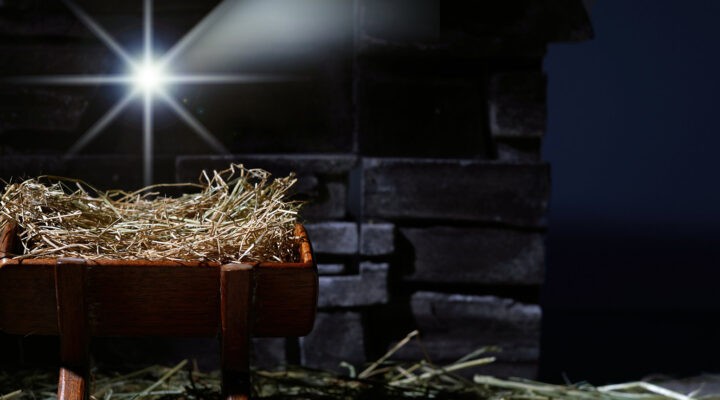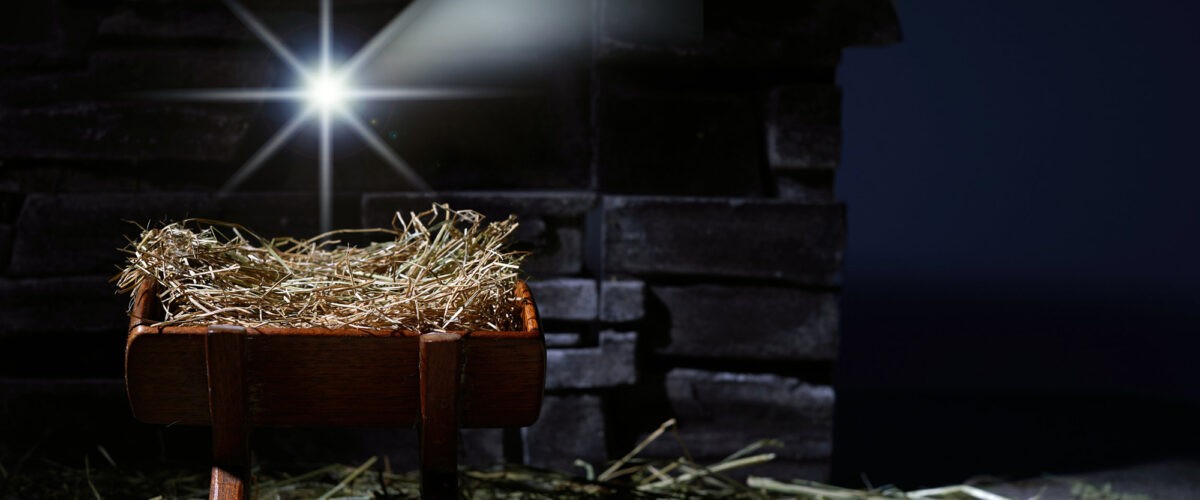Advent feels paradoxically heavy and elusive this year.
Jan. 20 looms large on the horizon beyond Dec. 25. Many people I know, including myself, are hoping against hope things won’t be as bad as we fear. That Trump’s retributive, hate-filled campaign rhetoric will amount to little more than words. That he was sincere in disavowing Project 2025. That our constitutional levies once again can contain the storm surge of his rapacious egotism, aggrieved impulsivity and authoritarian zeal.
And that’s just America. When we pause to consider Gaza, Ukraine, Lebanon, Sudan — the world feels dark indeed.
Beneath all this existential weight, I’m finding it difficult to “get into the Christmas spirit.” Typical church fare isn’t helping. In the best of times, most Sunday morning Advent litanies resonate thin and tinny. Even the Magnificat rings a bit hollow in my ears this year, knowing millions of Americans, including millions of American Christians, willfully voted to raise up the rich and send the lowly away. I firmly believe there is a light shining in the darkness but at the moment, I’m struggling to pinpoint its radiance, much less feel its warmth.
Bible hope
To soothe my soul, I have been pouring over the lectionary texts for Advent and Christmas, searching for a handhold, some form of hope to hold onto when peace, joy and love seem so far off. I was surprised by the passage that finally grabbed my attention:
In those days a decree went out from Caesar Augustus that all the world should be registered. This was the first registration and was taken while Quirinius was governor of Syria. All went to their own towns to be registered. Joseph also went from the town of Nazareth in Galilee to Judea, to the city of David called Bethlehem, because he was descended from the house and family of David. He went to be registered with Mary, to whom he was engaged and who was expecting a child. — Luke 2:1-5
These familiar opening lines of the Christmas story struck me profoundly — in ways they have not in years past — because I realized we are the ones who have situated this text in the warm glow of candlelight and surrounded it with fragrant garlands and gleaming tinsel. What Luke is portraying contains no such refinements or comforts.
“For a story that’s nearly 2,000 years old, it is remarkably contemporary in terms of its mood.”
This is a scene riddled with anxiety, stress and even danger. In fact, for a story that’s nearly 2,000 years old, it is remarkably contemporary in terms of its mood when understood in its historical context.
Mary and Joseph’s trek from Nazareth to Bethlehem would have stretched 90 miles in distance and risen 1,400 feet in elevation. (When have we ever framed our annual pilgrimage to the manger as a long walk uphill?) Most likely they would have made the trip on foot. Certainly, they would have set off lacking the advantages of modern footwear. Even if Mary was able to ride, seated on a donkey as she is so frequently portrayed, progress would have been jostling and plodding for days on end. And they weren’t undertaking this daunting journey for their honeymoon or a festival or a long-awaited family reunion. They went all that way, went to all that trouble, to be counted, appraised and taxed by the emperor who was their overlord. That is why Augustus named Quirinius governor of Syria: to conduct a census of his new subjects in Judea and settle the estate of the Jews’ now deposed king, Archelaus.
The Jewish historian and apologist Josephus records that, just prior to Quirinius’ appointment, Rome had annexed Judea, transforming the former client kingdom into a province under the jurisdiction of Syria’s legate. For the inhabitants of Judea, this meant Rome no longer was a distant, indirect power. Rome was now local.
In reality, Judean independence had ceased more than 60 years prior when Pompey settled a dynastic dispute in Jerusalem. No one since had ruled in Palestine without Rome’s blessing. Now, however, there could be no pretence of autonomy. A Gentile pagan reigned over the people of God — a Gentile pagan who claimed to be the son of another god.
Also a difficult time
This change in Judea’s political reality left many Jews distraught. In the Hebrew Scriptures, a census was considered an affront against God (Exodus 30:12). God punishes David in 2 Samuel 24:1-17 for conducting a census. 1 Chronicles 21:1 blames Satan for making David do it. Josephus relates that the high priest Joazar eventually persuaded a majority of the people to comply with the registration and pay their taxes. But a certain man named Judas incited a rebellion.
The Pharisee Gamaliel mentions this same Judas in Acts 5:34-39 when counseling the Jerusalem authorities not to execute the apostles, defiant though they remain in preaching Jesus as the crucified and risen Lord. If what Peter and the others have been saying is not of God, then their movement will inevitably fail, Gamaliel reasons, just as Judas’ rebellion at the time of the census failed. If it is of God, well, then you gentlemen don’t want to be killing God’s agents.
“God was not with them, at least not in the way Judas imagined.”
Judas argued the census amounted to slavery and promised the people prosperity if they followed him and won, honor and renown even if they lost. Surely God would be with them, he declared, especially if they would not shrink from the bloodshed required to drive the Romans out of the land.
But God was not with them, at least not in the way Judas imagined. The uprising was crushed. In the aftermath, those who championed Judas, those who had fought and survived, would have been doubly disillusioned: grieving the loss of family, friends and neighbors; suffering inside their own wounded bodies; lamenting loss of property, possessions and livelihoods; and for all that hardship having to submit to Caesar Augustus anyway.
Yet the suffering would not end there. Josephus says Judas’ revolt sowed the seeds of misery and utter destruction that would visit Jerusalem in the coming decades. Judas himself would be remembered as the founder of the Zealots, the so-called “fourth philosophy” of Judaism, who would enflame strife between different Jewish factions, carry out guerilla attacks against Romans and their Jewish “sympathizers,” and ultimately spark the rebellion of 66 CE, which would lead to the fiery destruction of the Temple and much of the holy city.
This means that first Christmas was neither holly nor jolly. There were no chestnuts roasting on open fires, no visions of sugarplums dancing in anyone’s heads. Jesus was born into an atmosphere of rhetorical and physical violence. Theological disillusionment permeated the night air in which the shepherds kept watch over their flocks. Cultural anxiety formed the backdrop against which the angels sang glory to God in the highest and peace and good will on earth.
Still, they sang
But nevertheless, they sang. They sang because into this darkness — the darkness of what some mourned as the unthinkable and others brooded as the tragically predictable — a newborn infant wrapped in bands of cloth lay in a manger. God’s anointed, the true Lord, Emmanuel: God come to be with God’s people, with all people.
“The gift — the glory — of Christmas is that God has come to be with us in our discontent.”
Rediscovering this backstory to Luke’s Christmas story is the handhold I needed to stop the downward slide of my own discontent. This context is what makes Luke’s familiar account worth hearing again, even if — perhaps especially if — you or I don’t feel like decorating or celebrating much this year.
The gift — the glory — of Christmas is that God has come to be with us in our discontent, in our resignation, in the quagmire that forms when the machinations of the powers-that-be mingle with our follies, fears and prejudices and all that our frail, fickle humanity compels us to do and not to do.
For Luke, our reason to hope isn’t philosophical or symbolic. It lies sleeping (and crying) in a cattle shed in the middle of all this muck. That’s the light that shines in the darkness and the darkness does not overcome it! A light that dwells with us, abides with us. A light that is enfleshed.
The good news the angels bring is that Jesus abides with us in this confused and confusing world and calls us into it with him and for him. Like all those burdened with grief, anger, fear and jaded faith while Quirinius was legate of Syria, we have to wrestle with how best to navigate this darkness: when to comply, when to defy; where to stand up, how to speak out. But we can take courage knowing Jesus is in the quagmire with us, no matter how miry it gets.
We can resist because Jesus is the true Lord and his light still shines in the darkness, with us and for us, and the darkness does not overcome it.
May we stand and be counted as part of the holy resistance to this imposing darkness, wherever and however it falls around us.
Todd Thomason is a gospel minister and justice advocate who has served as pastor of churches in Virginia, Maryland and Canada. He holds a doctor of ministry degree from Candler School of Theology at Emory University and a master of divinity degree from McAfee School of Theology at Mercer University. Currently, he is a Ph.D. candidate in New Testament and Christian origins at the University of Edinburgh in Scotland. In addition to Baptist News Global, Todd writes at viaexmachina.com.



